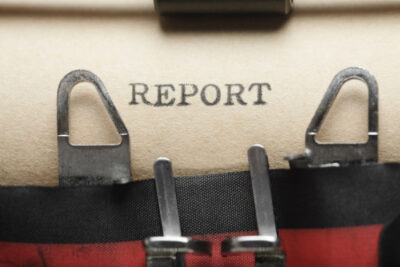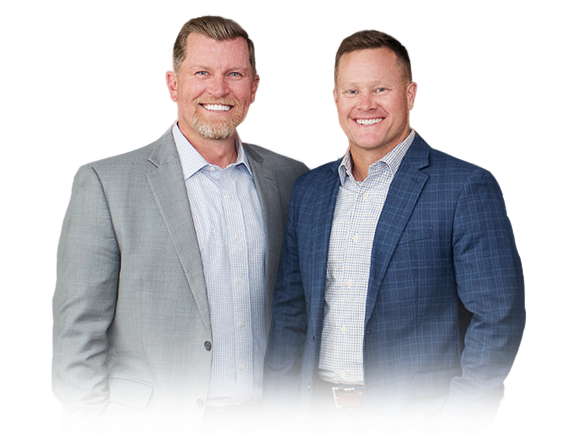 A car accident can leave you feeling confused and overwhelmed. Between injuries, vehicle repairs, and medical costs, it’s easy to miss something important. One document that can make or break your case is the police report. This record plays a major role in determining what happened and who was at fault.
A car accident can leave you feeling confused and overwhelmed. Between injuries, vehicle repairs, and medical costs, it’s easy to miss something important. One document that can make or break your case is the police report. This record plays a major role in determining what happened and who was at fault.
Good Guys Injury Law helps accident victims across Utah, including Salt Lake City, get the support they need. We use police reports to help with your personal injury claim, review the accident scene, and deal with the insurance claims process. Whether you’re facing medical bills, property damage, or a fight with the insurance adjusters, our team works hard to help you get fair compensation.
Table of Contents
What Is a Police Report After a Car Accident?
A police report is an official record created by a law enforcement agency after a crash. It explains what happened, when the accident occurred, and who was involved. It usually includes names, addresses, vehicle types, and insurance data. Officers also write about the road conditions, traffic signals, and any injuries sustained.
This report matters because it provides facts from the scene while they’re still fresh. It often lists the at fault driver, and sometimes mentions possible legal repercussions if a crime was committed. The report may include a diagram of the accident scene, contact details of the drivers, and a basic fault assessment. You can request a copy from the local police department or the Utah Highway Patrol, usually for a small fee.
When and How Officers File Reports in Utah
In Utah, police officers file an accident report when the crash results in injury, death, or significant property damage. If the law enforcement agency responded to your crash, they likely created a report on-site.
If no officer came, you may be required to file one yourself. Reports can be submitted through the Utah Department of Public Safety or the sheriff’s office using a request form.
Importance of Police Reports in Utah Car Accident Claims
 The police report often serves as the first written account of what happened. It may shape how both your lawyer and the insurance company view your case.
The police report often serves as the first written account of what happened. It may shape how both your lawyer and the insurance company view your case.
First Official Account of the Crash
The accident report gives the first clear summary of the crash. It includes the events leading to the collision, weather conditions, time of day, and positions of the vehicles involved. It also notes whether the drivers were cooperating and whether the other driver showed signs of distraction or intoxication. This early version of the story is used to piece together what happened.
Provides Unbiased Third-Party Documentation
Since the police officer is not connected to either party, their report is seen as neutral. That’s why it often carries weight in personal injury cases. The officer’s job is to provide key details, not to take sides. Their notes, photos, and detailed statements offer a version of the story that’s less likely to be disputed.
Used by Insurance Companies to Determine Fault
Insurance claims adjusters rely on the report’s details to assign blame. The officer’s notes help them determine liability based on what was found at the accident scene. If you were listed as the at fault driver, the insurer might reduce or deny your payout.
If the other driver was at fault, the report can support your demand for fair compensation.
Helps Attorneys Evaluate Your Case
A personal injury lawyer will use the accident report to study key details, find gaps in the story, and build your case. Good Guys Injury Law compares reports with witness accounts, medical records, and photos.
This helps us establish fault and fight for the best outcome. Whether you’re seeking coverage for medical expenses, lost wages, or vehicle damage, the report helps us shape a stronger case.
What’s Inside a Utah Police Report?
A Utah accident report contains important facts that help clarify what happened after a crash. It is created by the law enforcement agency that responds to the scene. The report includes contact details, insurance data, a summary of the accident scene, and key notes that may support or challenge fault. Each part of the report helps during the claims process and potential legal proceedings.
Contact and Insurance Details of Involved Drivers
One of the first things included in the police report is the basic contact information for the involved parties, including their full names, addresses, phone numbers, and driver’s license numbers. The officer also lists insurance information for each person and their vehicle, making it easier to file insurance claims.
These records help your attorney or insurer track down the other driver if needed. Having accurate contact and insurance details is essential when trying to recover costs for vehicle damage, medical expenses, or lost wages after the crash.
Witness Statements and Officer Observations
The report may include direct quotes or summaries from any witnesses who saw the accident occur. These statements can help determine liability, especially if there is a disagreement between the drivers.
The officer also includes their own observations, such as vehicle positions, road conditions, visible property damage, and behavior from each person involved. These notes offer an early third-party account of the accident scene, which may support your case if you later pursue a personal injury claim.
Diagram of the Crash Scene
Police reports often contain a basic diagram showing how the crash happened. The drawing usually includes the roads, the vehicles involved, their direction of travel, nearby traffic signals, and where the impact occurred.
These visual details help both insurance adjusters and lawyers better understand the events leading to the collision. The diagram can also be helpful in court if there’s a personal injury lawsuit, especially when there are multiple parties involved or conflicting stories about what happened.
Preliminary Determination of Fault or Citations Issued
In some cases, the officer may include a note about which driver they believe caused the crash, or which person violated a traffic law. If a citation was issued at the scene, it will be listed in this section of the report.
While this isn’t the final word on fault, it can strongly influence the insurance claims process. If the officer believes one driver failed to yield or was speeding, that may impact your ability to receive fair compensation for medical bills, property damage, or other losses.
How Police Reports Affect Fault Determination
 In Utah, determining who caused the accident plays a big role in how much money a person can recover after a crash. The police report is often used as a starting point to assign blame. While it doesn’t decide the case by itself, it can influence both the insurance claims process and any future legal proceedings.
In Utah, determining who caused the accident plays a big role in how much money a person can recover after a crash. The police report is often used as a starting point to assign blame. While it doesn’t decide the case by itself, it can influence both the insurance claims process and any future legal proceedings.
Utah’s Modified Comparative Negligence Rule
Utah follows a modified comparative negligence rule, which means each party in an accident can be assigned a percentage of fault based on the facts. If you’re found to be less than 50% at fault, you may still recover damages, but the amount you receive will be reduced by your share of the blame.
However, if your responsibility is found to be 50% or more, you may be barred from recovering anything. This rule makes it even more important for your personal injury claim to be backed by a strong, accurate accident report that helps determine liability clearly.
Influence of Officer’s Fault Assessment on Insurance Negotiations
The officer’s opinion on who caused the crash, especially if clearly stated in the accident report, often carries significant weight during negotiations with the insurance company. Insurance adjusters typically review this section carefully to help decide whether they will accept or deny your insurance claim.
Even though this assessment isn’t legally binding, it can strongly influence how the insurer handles the case and whether they believe you are owed fair compensation. That’s why reviewing the officer’s statements with your lawyer is so important early on.
How Fault in the Report Can Affect Your Compensation Percentage
If the accident report shows that you were partially responsible for the crash, the percentage assigned to you could lower your total settlement amount. For example, if your damages are valued at $50,000 but the report suggests you were 20% at fault, you may only recover $40,000 under Utah law.
This makes accurate details in the report critical, as errors or biased wording could cost you thousands. A lawyer can review the report’s details and challenge anything that could reduce your chance of getting fair compensation.
Can a Police Report Be Challenged?
Yes. Police officers are human. Sometimes, their reports include errors or miss important facts.
Common Mistakes
- Wrong contact details – Names or phone numbers may be off.
- Vehicle info errors – Wrong make, model, or license plate.
- Missed witness names – Important statements may be left out.
- Incomplete diagrams – Scene sketches may not show significant property damage.
- Fault assumptions – Officers may assign blame too early without a thorough investigation.
How to Request a Correction or Add a Statement
You can ask the local police for a change if there’s a clear mistake. You’ll likely need a request form, your ID, and a reason for the correction. If they agree, the change may be noted or added as a supplement.
When a Lawyer May Help Clarify or Dispute Findings
If the issue affects your case, your lawyer can contact the police department or Utah Highway Patrol. They may present new evidence or witness info. This can help correct the record or challenge blame placed on you.
FAQs
1. Can a police report lead to a favorable outcome in my case?
Yes. A well-documented report that supports your version of events can help your lawyer fight for a favorable outcome in the legal process.
2. What if the police report blames the wrong person?
You may still challenge the findings. With the right evidence, your lawyer can help prove the responsible party and protect your right to fair compensation.
3. Can car accidents result in criminal charges?
Yes. If the accident report shows reckless driving, DUI, or other violations, the responsible party may face penalties or criminal charges.
4. What if the police report leaves out specific details?
If important facts are missing, you can request corrections or add a statement. These specific details could impact your claim or legal options.
5. Should I take legal action if I disagree with the insurance decision?
If your claim is denied or undervalued, you may need to file a legal action to recover what you’re owed. A lawyer can review the report and advise on your best path forward.
Contact Our Personal Injury Lawyer for a Free Case Consultation
 If you’ve been involved in a car accident in Utah, and you’re unsure how the accident report might affect your case, we’re here to help. The report can impact everything from your ability to file a personal injury claim to how much compensation you can recover. Understanding the report’s specific details is critical, especially if you’re trying to prove the responsible party, respond to insurance claims, or pursue legal action for serious injuries or property damage.
If you’ve been involved in a car accident in Utah, and you’re unsure how the accident report might affect your case, we’re here to help. The report can impact everything from your ability to file a personal injury claim to how much compensation you can recover. Understanding the report’s specific details is critical, especially if you’re trying to prove the responsible party, respond to insurance claims, or pursue legal action for serious injuries or property damage.
Good Guys Injury Law helps clients review every part of their case, including their police reports, evidence, and medical records, to make sure they receive a favorable outcome. We explain your legal options clearly and guide you through every step of the legal process. Whether you’re just starting a claim or have run into trouble with the insurance company, we’re ready to fight for your rights.
Call today for your free consultation. We’ll take the time to listen and help you move forward with confidence.






